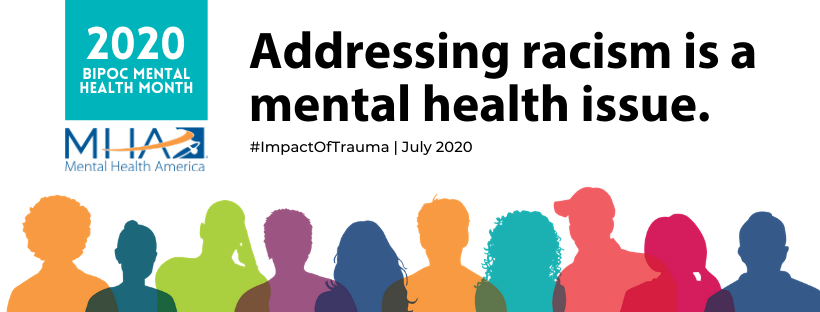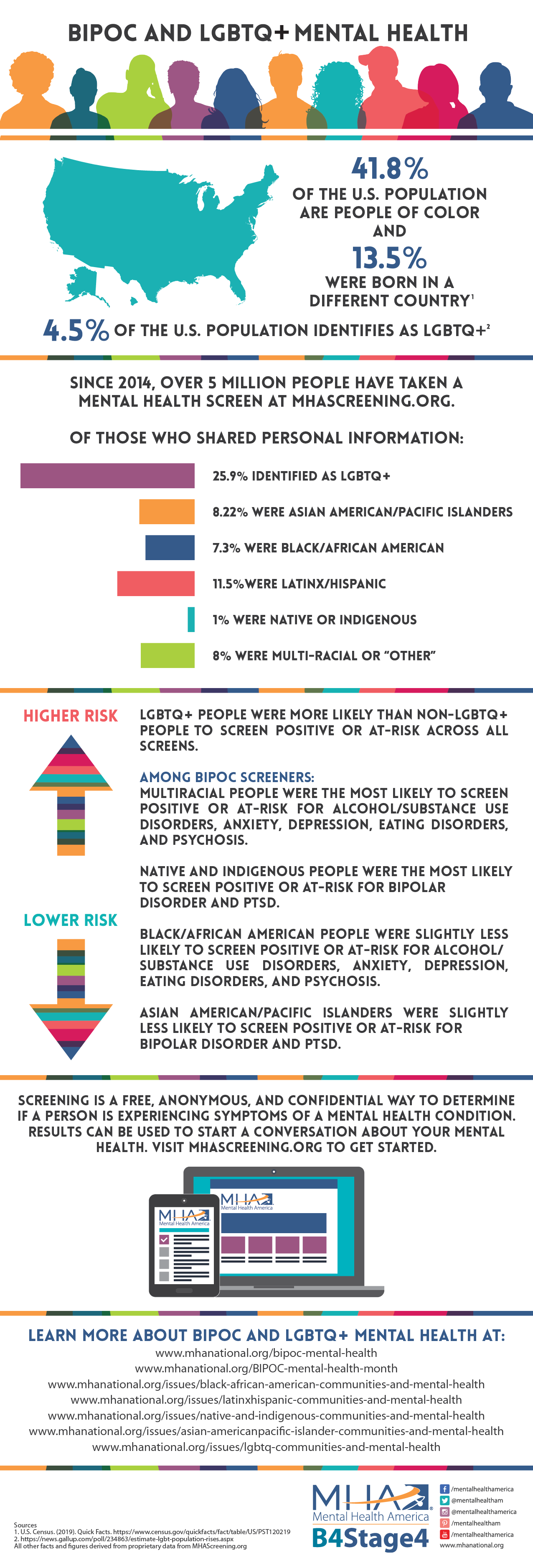Racism impacts mental health because it creates trauma. Systemic racism prevents equal access to healthcare services and higher rates of untreated mental illness in BIPOC communities.
July is BIPOC mental health month. BIPOC stands for Black, Indigenous People of Color. This expression is beginning to replace the word “minority” as a way of trying to more closely honor and understand the experience of people in these groups, rather than merely identifying them by the relative quantities and power imbalance implicit in using the terms “minority” or “majority.”
In their BIPOC toolkit, Mental Health America, a leading “community-based nonprofit dedicated to addressing the needs of those living with mental illness and to promoting the overall mental health of all Americans,” reports the following statistics regarding the mental health status of BIPOC populations:
- Black adults are 20 percent more likely to report serious psychological distress than adult Whites.
- Although rates of depression are lower in Black people (24.6 percent) and Hispanic people (19.6 percent) than in White people (34.7 percent), depression in Black people and Hispanic people is likely to be more persistent. Furthermore, BIPOC often experience a disproportionately high burden of disability from mental disorders.
- Compared with White people with the same symptoms, Black people are more frequently diagnosed with Schizophrenia schizophrenia and less frequently diagnosed with mood disorders.
- Native and Indigenous Americans report higher rates of post traumaticpost-traumatic stress disorder and alcohol dependence than any other ethnic/racial group.
- Native and Indigenous Americans adults have the highest reported rate of mental illnesses of any single race identifying group.
- People who identify as being 2 two or more races (24.9 percent) are most likely to report any mental illness within the past year than any other race/ethnic group.
- Mental and behavioral health conditions are common among people in the criminal justice system, in which BIPOC are disproportionately overrepresented. Approximately 50 percent to 75 percent of youth in the juvenile justice system meet the diagnostic criteria for a mental illness.
Information compiled from BIPOC toolkit: https://mhanational.org/bipoc-mental-health-month-2020-toolkit-download


